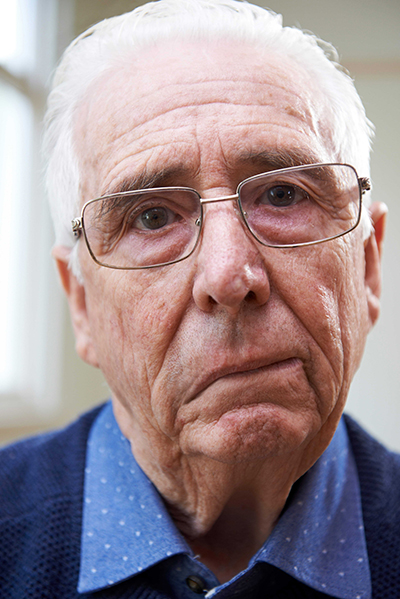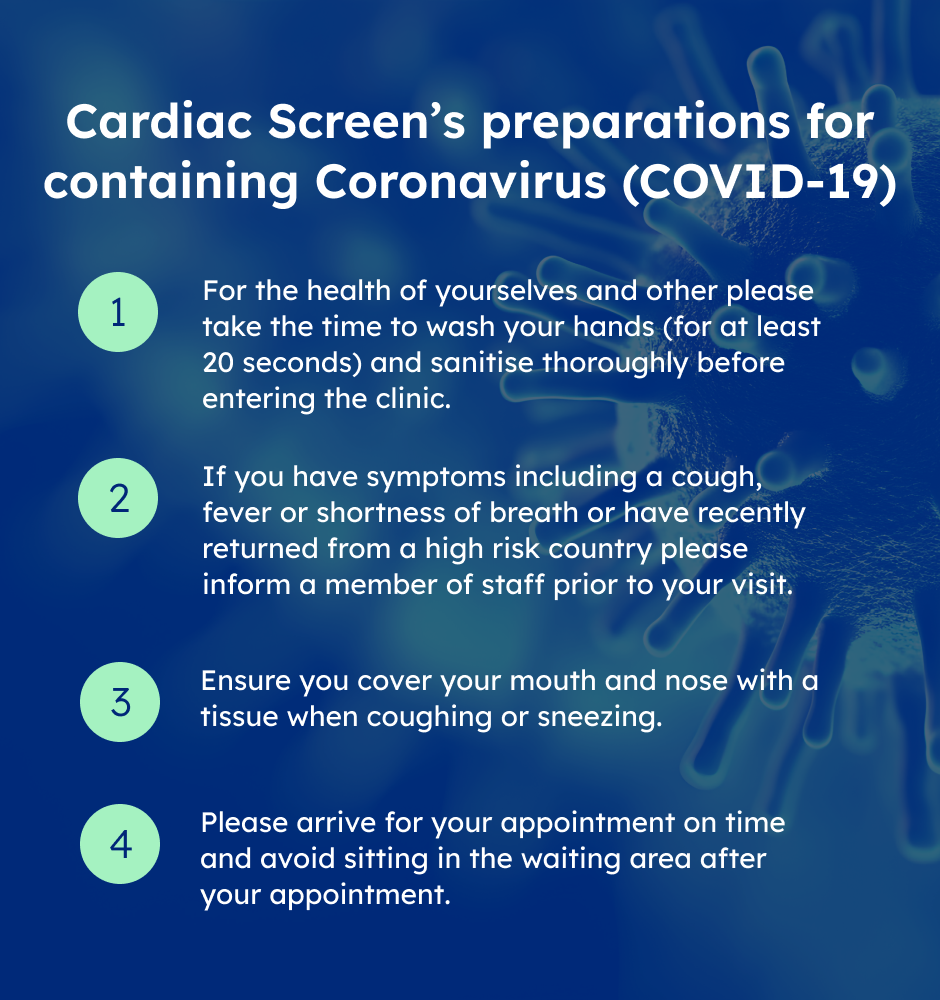Please click here to view Cardiac Screen's preparations for containing Corona Virus
Balppa House, 57-61 Newington Causeway, London SE1 6BD
What Are the Early Warning Signs of a Stroke?
Meet Our Medical Specialists

Could you tell if someone was having a stroke? Being able to spot the early warning signs could make all the difference for you or a loved one.
What is a Stroke?
A stroke happens when the blood supply to the brain is interrupted. In about 80% of cases, this happens because of a blood clot or blocked artery. Strokes can also happen if the blood vessel itself is damaged. Without a good blood supply, the brain cells don’t get the oxygen they need to function. If the supply is interrupted for long enough, the brain cells will die.
The effects of a stroke will depend on how long the interruption is. A mini-stroke or transient ischemic attack (TIA) happens when the blood vessel is just temporarily blocked. The symptoms can go away within minutes as the blood supply returns and there might not be much permanent damage to the brain cells. A TIA can be a sign that a more serious stroke is on the way, so it is important to take them seriously and to seek help, even if the symptoms go away by themselves. About 4 in 10 people who have a TIA will go on to have a stroke.
A major stroke can cause very serious symptoms, including long term problems because of the damage to the brain cells. A stroke could even be fatal if you aren’t able to get help quickly. The faster you seek help, the better the chances of a good recovery.
Who is at Risk?
Anyone can have a stroke, but some of us are more likely to have one than others. It is important to know if you are at higher risk so that you can ensure you’re aware of the warning signs. You might not be aware if you have a weakened blood vessel that could burst, but other risk factors for stroke can be screened for and often changed.
Most strokes happen when there is a blood clot or blockage in the blood vessels supplying the brain. Luckily, many of the factors that increase the risk of these kinds of blockages are under our control so you can take steps to reduce your risk.
You are more likely to have a stroke if:
- You are overweight
- You smoke
- You drink a lot of alcohol
- You have high cholesterol
- Your blood pressure is high
- You have certain conditions such as diabetes or atrial fibrillation
Eating a balanced diet, getting regular exercise and enjoying a healthy lifestyle can help to lower many of these risks.
If you want to find out your stroke risk then you should talk to your doctor or arrange health screening. Getting your blood pressure, cholesterol levels and other factors checked can tell you if you are more likely to develop a blood clot or to have a blocked artery that could cause a stroke.
How to Spot the Early Warning Signs?
You might have heard the FAST acronym before. It’s an easy way to remember the most common warning signs of a stroke and the importance of acting quickly:
- Face drooping (if you ask them to smile then it will be crooked or one-sided)
- Arm weakness or numbness (if you ask them to lift both arms, one will drop lower than the other)
- Speech problems such as slurring or difficulty repeating a sentence
- Time to call an ambulance
However, there are some other possible symptoms that you should watch out for too:
- A sudden, severe headache
- Sudden dizziness, loss of balance or coordination
- Loss of vision or changes to your vision in one or both eyes, which usually happens suddenly
- Feeling confused or having trouble understanding things that are usually easy for you
- Numbness or weakness on one side of the body (or in one arm or leg)
The signs of a stroke often appear suddenly, but that doesn’t mean that you won’t have time to act. Some people will experience symptoms such as headache, numbness or tingling several days before they have a serious stroke. One study found that 43% of stroke patients experienced mini-stroke symptoms up to a week before they had a major stroke.
If you take note of these symptoms and seek help even if they go away, then your chances of a good recovery are much better. Don’t ignore the early warning signs. You aren’t overreacting if there’s a change you’ve had a TIA. Get help right away as a more serious stroke could be hours or days away.
Why It’s Important and What to Do?
If you think that you or another person might be having a TIA or stroke then you need to get help right away. A stroke is a medical emergency as the faster you get treatment, the better. Call an ambulance right away and tell them that you suspect a stroke. Remember that you still need to go to hospital if the symptoms disappear as it may have been a mini-stroke.
The treatment you’re given will depend on the type of stroke, the area of the brain that is affected, and how severe the symptoms are. The first priority will be to restore the blood supply to your brain. It might be possible to dissolve a blood clot using medicine, but sometimes a surgical procedure is required. The sooner that you get this treatment, the better the results.
Once the immediate threat has been treated, you will probably need longer term treatment to prevent more strokes and to help you recover. You might need medication to prevent clots from forming or to reduce your blood pressure. Sometimes surgery is recommended to improve the blood supply to the brain. You might need extra support to manage any long-term effects such as speech or mobility problems. The sooner you get help, the easier it will be to treat you and the less likely you are to experience long term effects.
Do you feel better prepared to handle this kind of emergency now? And can you remember what FAST stands for without looking back?















